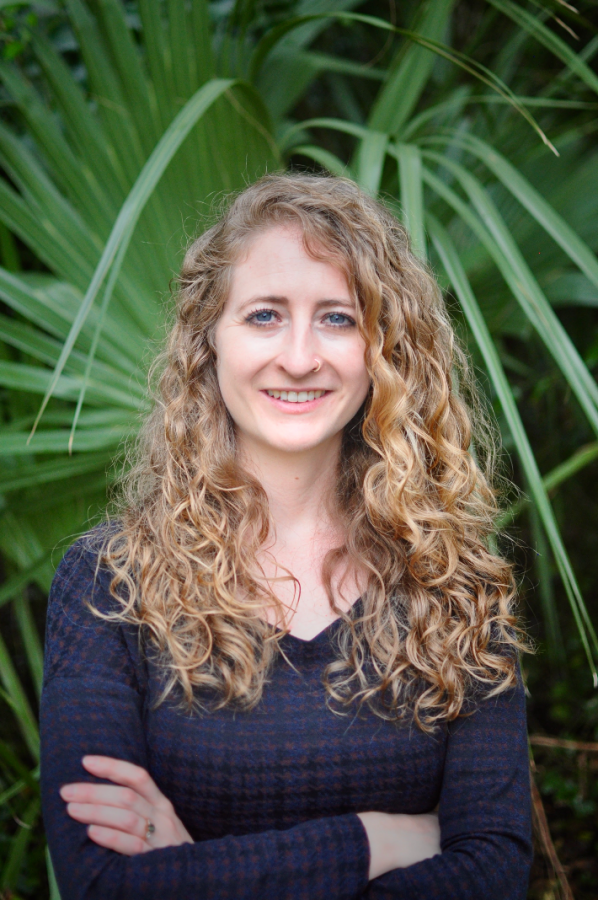Dr. Adrienne Strong lectures on “Global Health, Maternal Mortality, and the Ethics of Care in Tanzania.”
Despite great improvements in medicine and healthcare over the last few centuries, there are still people who die from easily preventable causes. A valuable indicator of the overall health care system effectiveness and development in a country is maternal mortality, or the number of individuals who do not survive childbirth. Although disparities in these rates can still be an issue in places like the United States, they can be particularly severe in the developing world.
Assistant Professor of Anthropology at University of Florida Adrienne Strong gave her lecture, “Global Health, Maternal Mortality, and the Ethics of Care in Tanzania” this past Thursday to Luther students and staff, predominantly from various anthropology and global health classes and clubs.
The lecture focused on the idea that underpaid, understaffed, and undersupplied healthcare workers in disadvantaged areas were being expected to carry out extensive programs to help the expectant, without being properly supported.
“I became really interested in the perspectives of the healthcare providers,” Strong said. “A lot of work in anthropology on this issue is focused on the perspective of women, which of course is really important, but it seemed to me that no one was really listening to, or asking questions about, the healthcare workers who are supposed to implement these [maternal mortality prevention] programs.”
This idea is what inspired Strong’s book Documenting Death: Maternal Mortality and the Ethics of Care in Tanzania, which is now used in parts of the anthropology and global health curriculums here at Luther. The Luther anthropology department brought her to campus to give a lecture on this issue.
Associate Professor of Anthropology Maryna Nading expanded on the importance of the lecture and the problem of maternal mortality as it was addressed in the text.
“A large number of maternal deaths are preventable, and the technologies for addressing these issues have existed for a very long time,” Nading said. “The urgency is to understand why those technologies have not been distributed equitably.”
Professor of Biology Scott Carlson also attended Strong’s lecture and commented on the fact that governments such as Tanzania’s do not have cohesive healthcare systems.
“Dr. Strong’s research raises the important question of inequity of care across the world. It also highlights the complexity of disparities,” Carlson said. “The disconnect between the intentions of administrators and the actions of physicians and nurses needs to be addressed significantly and seriously.”
The majority of Strong’s lecture was focused on the concept of audits, a practice put into place in an attempt to diagnose the cause of each death and come up with a plan to prevent it in the future. However, as Strong witnessed, these audits often became compulsory and led to little change.
So why is the maternal mortality rate still so high in Tanzania and other impoverished populations in the Global South, despite the implementation of preventative measures? Strong explained that there must be more time spent working with and supporting doctors and healthcare workers, as well as the women seeking medical attention.
“If they don’t know what they’re doing, if they don’t have the resources they need, if they are all burnt out because they don’t feel supported in their work, then obviously how are we going to change anything?” Strong said.
Nading commented on the tenacity of healthcare workers who continue to do their jobs despite their demanding and inequitable circumstances.
“I think what’s truly inspirational is just that people keep going, people keep working,” Nading said. “I’m talking about healthcare providers who work in these conditions. Healthcare provider scarcity is a very serious problem in many parts of the world. Burnout is a real issue.”
For those who missed the lecture, or want to learn more about this subject for their own research, Documenting Death: Maternal Mortality and the Ethics of Care in Tanzania can be purchased in the Luther Bookshop, or found for free online.
“What I want people to take away is that the world is full of inequalities,” Strong said. “I personally believe that we all have a responsibility to work towards addressing those so that everyone can live a full and happy life, and you are not doomed to die of something like pregnancy just because of where you were born.”
Strong hopes the exposure her lecture and text give to the situation in Tanzania and the Global South will help facilitate deeper understanding, conversation, and change in the future.






